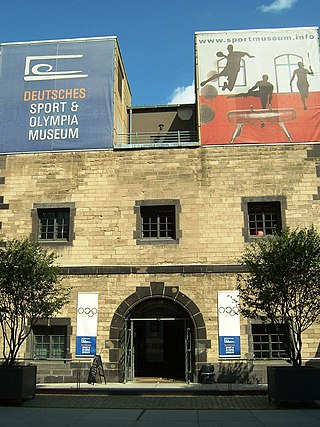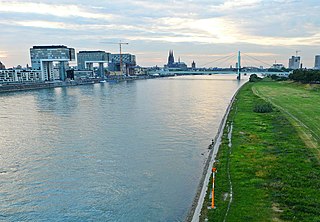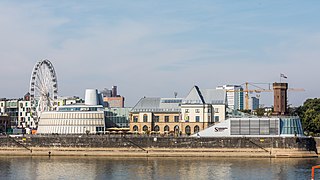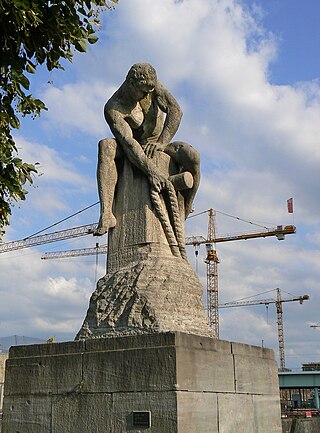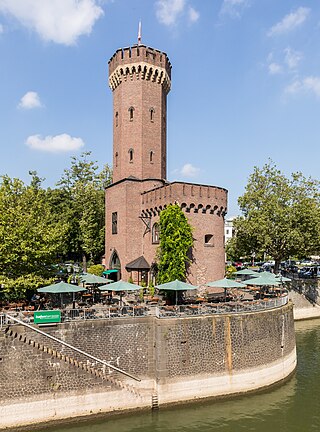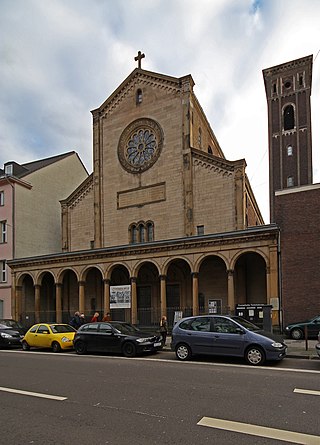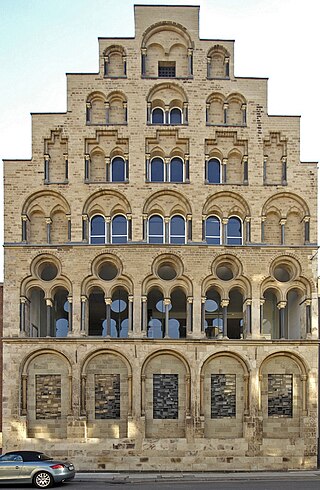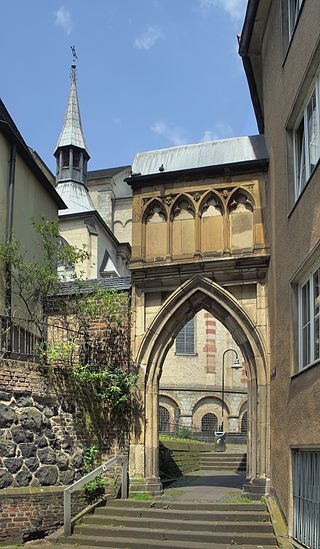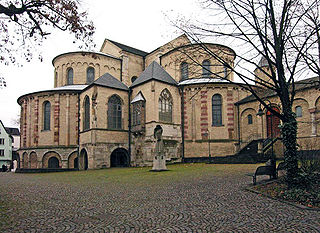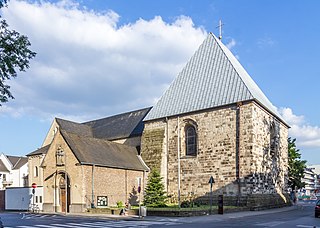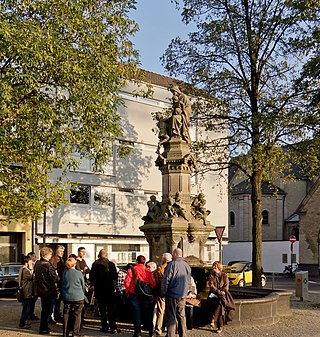Self-guided Sightseeing Tour #5 in Cologne, Germany
Legend
Guided Free Walking Tours
Book free guided walking tours in Cologne.
Guided Sightseeing Tours
Book guided sightseeing tours and activities in Cologne.
Tour Facts
3.5 km
64 m
Experience Cologne in Germany in a whole new way with our free self-guided sightseeing tour. This site not only offers you practical information and insider tips, but also a rich variety of activities and sights you shouldn't miss. Whether you love art and culture, want to explore historical sites or simply want to experience the vibrant atmosphere of a lively city - you'll find everything you need for your personal adventure here.
Activities in CologneIndividual Sights in CologneSight 1: Deutsches Sport- und Olympiamuseum
The German Sport & Olympic Museum is a museum in Cologne that presents the history of sports from antiquity to modern times. It is located in Cologne's Rheinauhafen within the Cologne-Altstadt-Süd district.
Sight 2: Rheinauhafen
The Rheinauhafen is a 15.4 hectares urban regeneration project in Cologne, Germany, located along the river Rhine between the Südbrücke and Severinsbrücke, just south of the inner city's historic old town.
Sight 3: Chocolate Museum
Get Ticket*The Cologne Chocolate Museum is a special museum for chocolate in the Cologne district of Altstadt-Süd. The exhibition building, located on a peninsula in the Rheinauhafen, houses a collection on the history of chocolate and a permanent exhibition on modern chocolate production, among other things.
Sight 4: Der Tauzieher
The Tauzieher is a limestone sculpture by Nikolaus Friedrich which was erected in 1911 in Rheinauhafen, Cologne. It depicts a man making a heavy rope or hawser fast to a bollard and is 6.5 metres in height. In 1980, it was listed as one of the first heritage sites in Cologne.
Sight 5: Malakoffturm
The Malakoff Tower is a relic of the Prussian Rhine embankment fortification built from 1848 to 1858 at the Holzmarkt in Cologne.
Sight 6: St. Maria Lyskirchen
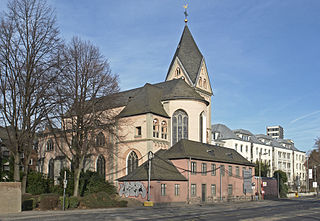
St. Maria Lyskirchen is one of twelve Romanesque churches in Cologne, Germany.
Sight 7: Trinitatiskirche
The Trinitatiskirche is the oldest newly built Protestant church in Cologne on the left bank of the Rhine. It is located in the southern old town on Filzengraben, near the Heumarkt. Due to the depopulation of the city centre, it no longer holds regular community services, but it does host central events of the Protestant Church Association for the Cologne region, services on special occasions, concerts and art exhibitions. The Trinity Church serves as a place of worship for the Protestant deaf community. The cultural partner is the WDR Radio Choir.
Sight 8: Overstolzenhaus
The Overstolzenhaus in Cologne is one of the oldest buildings in the city of Cologne, is the oldest surviving patrician house in Germany along with the Trier Dreikönigenhaus and was mainly used as a residential building. It is somewhat hidden in Rheingasse 8, Altstadt-Süd.
Sight 9: Dreikönigenpförtchen
The hidden Epiphany Gate is the only one of the gates of Cologne's many former monastic immunity districts to have been preserved. At the walls of these monasteries and monasteries, the city's legislative power and tax sovereignty ended. The gate connects the Lichhof of the Church of St. Maria in the Capitol with Marienplatz. The small gate is not to be confused with the medieval Three Kings Gate, a gateway of the city fortifications on the Rhine side that was demolished in 1854.
Sight 10: St. Maria im Kapitol
Get Ticket*St. Maria im Kapitol is an 11th-century Romanesque church located in the Kapitol-Viertel in the old town of Cologne, Germany. The name “im Kapitol“ refers to the Roman temple for the Capitoline Triad that was built on today’s site of the church in the first century. The Catholic church is based on the Church of the Nativity in Bethlehem, was dedicated to St. Mary and built between 1040 and 1065. It is one of twelve Romanesque churches built in Cologne during this period.
Sight 11: St. Georg
St. Georg's Church is one of twelve Romanesque churches in the city of Cologne, Germany.
Sight 12: Hermann-Joseph Brunnen
The Hermann-Josef-Brunnen is a sculptural fountain originally designed as a running fountain at the Waidmarkt in the Cologne district of Altstadt-Süd. It was donated in 1894 by the Cologne Beautification Association and designed and implemented by the sculptor Wilhelm Albermann. The sculptures depict scenes from the life and legend of the so-called "apple saint" Hermann Joseph von Steinfeld. The fountain has been registered in the list of monuments of the city of Cologne since 1 July 1980 under number 164.
Sight 13: Wasserturm Hotel Cologne
Built between 1868 and 1872, the listed former water tower in Cologne's Altstadt-Süd district is one of the oldest surviving water towers and has been used as a luxury hotel since 1990.
Share
How likely are you to recommend us?
Disclaimer Please be aware of your surroundings and do not enter private property. We are not liable for any damages that occur during the tours.
GPX-Download For navigation apps and GPS devices you can download the tour as a GPX file.
